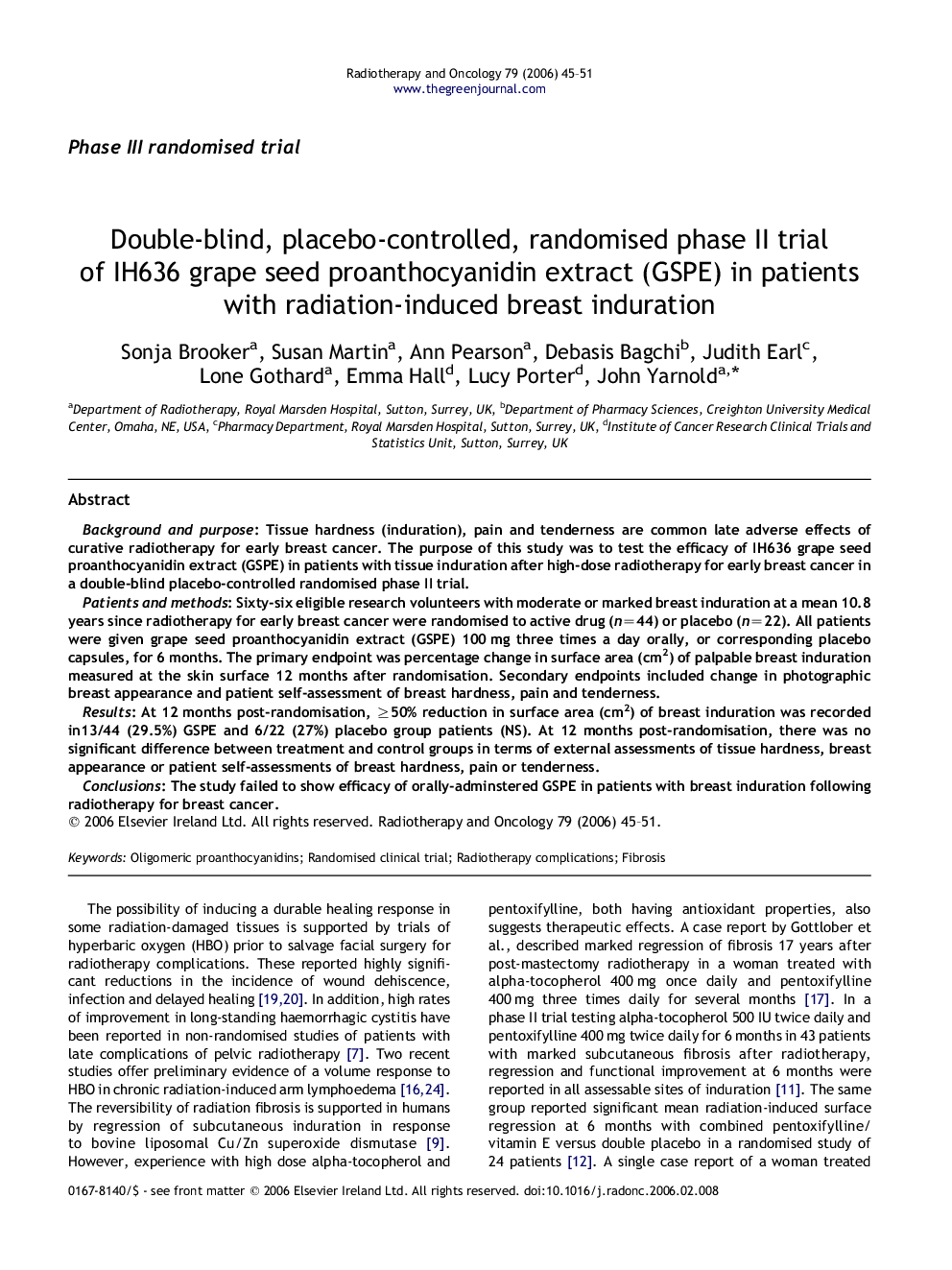| Article ID | Journal | Published Year | Pages | File Type |
|---|---|---|---|---|
| 2161346 | Radiotherapy and Oncology | 2006 | 7 Pages |
Background and purposeTissue hardness (induration), pain and tenderness are common late adverse effects of curative radiotherapy for early breast cancer. The purpose of this study was to test the efficacy of IH636 grape seed proanthocyanidin extract (GSPE) in patients with tissue induration after high-dose radiotherapy for early breast cancer in a double-blind placebo-controlled randomised phase II trial.Patients and methodsSixty-six eligible research volunteers with moderate or marked breast induration at a mean 10.8 years since radiotherapy for early breast cancer were randomised to active drug (n=44) or placebo (n=22). All patients were given grape seed proanthocyanidin extract (GSPE) 100 mg three times a day orally, or corresponding placebo capsules, for 6 months. The primary endpoint was percentage change in surface area (cm2) of palpable breast induration measured at the skin surface 12 months after randomisation. Secondary endpoints included change in photographic breast appearance and patient self-assessment of breast hardness, pain and tenderness.ResultsAt 12 months post-randomisation, ≥50% reduction in surface area (cm2) of breast induration was recorded in13/44 (29.5%) GSPE and 6/22 (27%) placebo group patients (NS). At 12 months post-randomisation, there was no significant difference between treatment and control groups in terms of external assessments of tissue hardness, breast appearance or patient self-assessments of breast hardness, pain or tenderness.ConclusionsThe study failed to show efficacy of orally-adminstered GSPE in patients with breast induration following radiotherapy for breast cancer.
